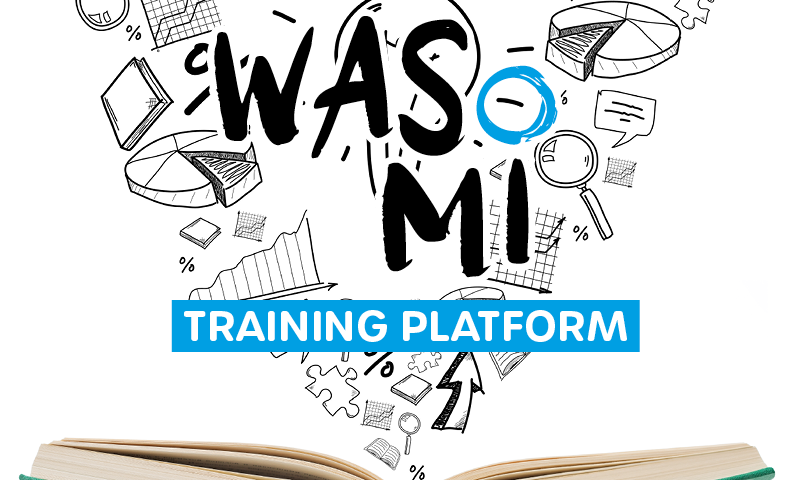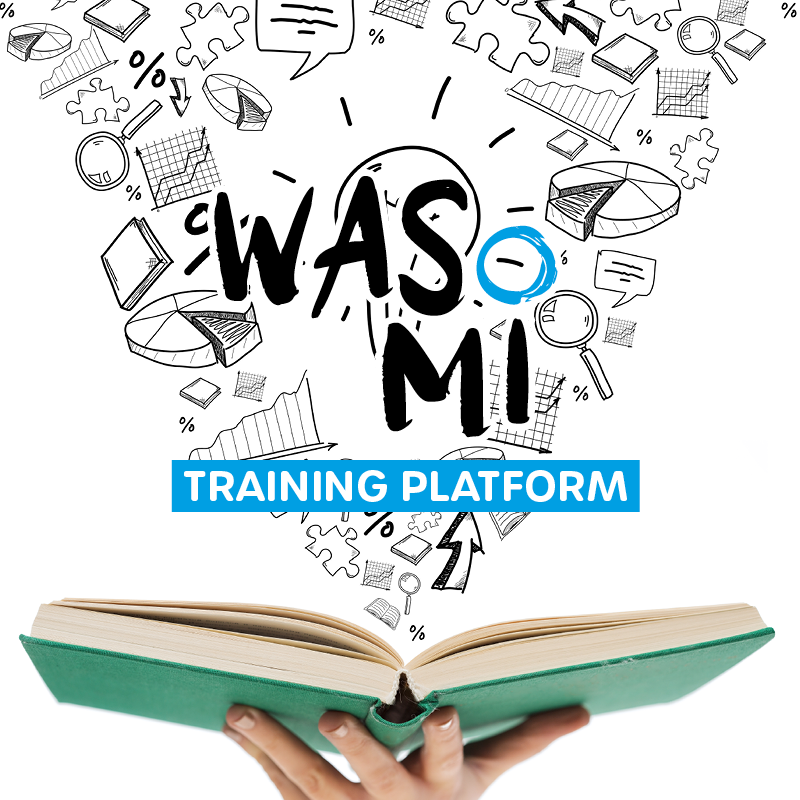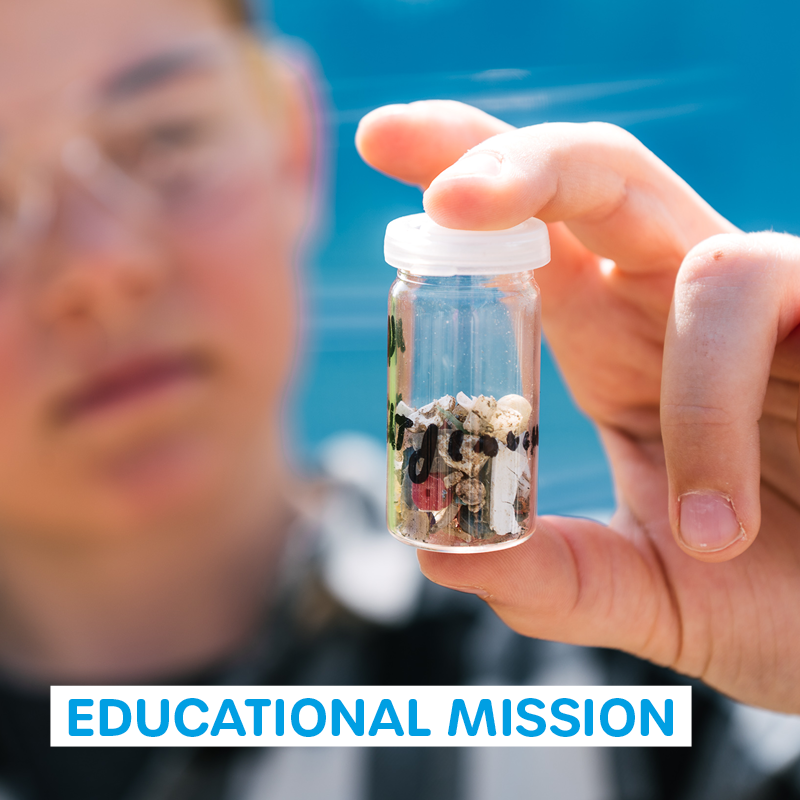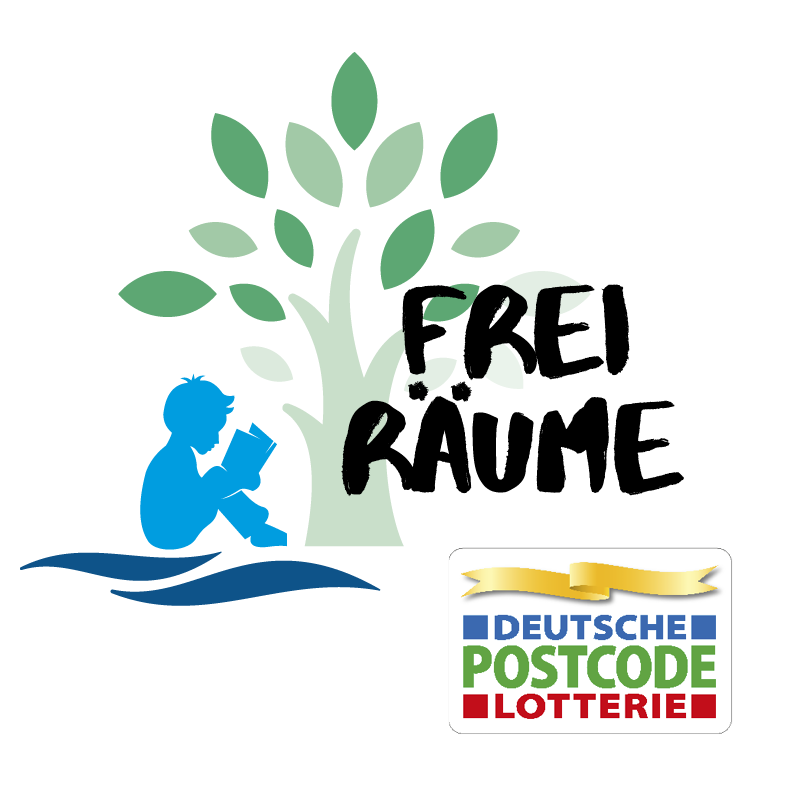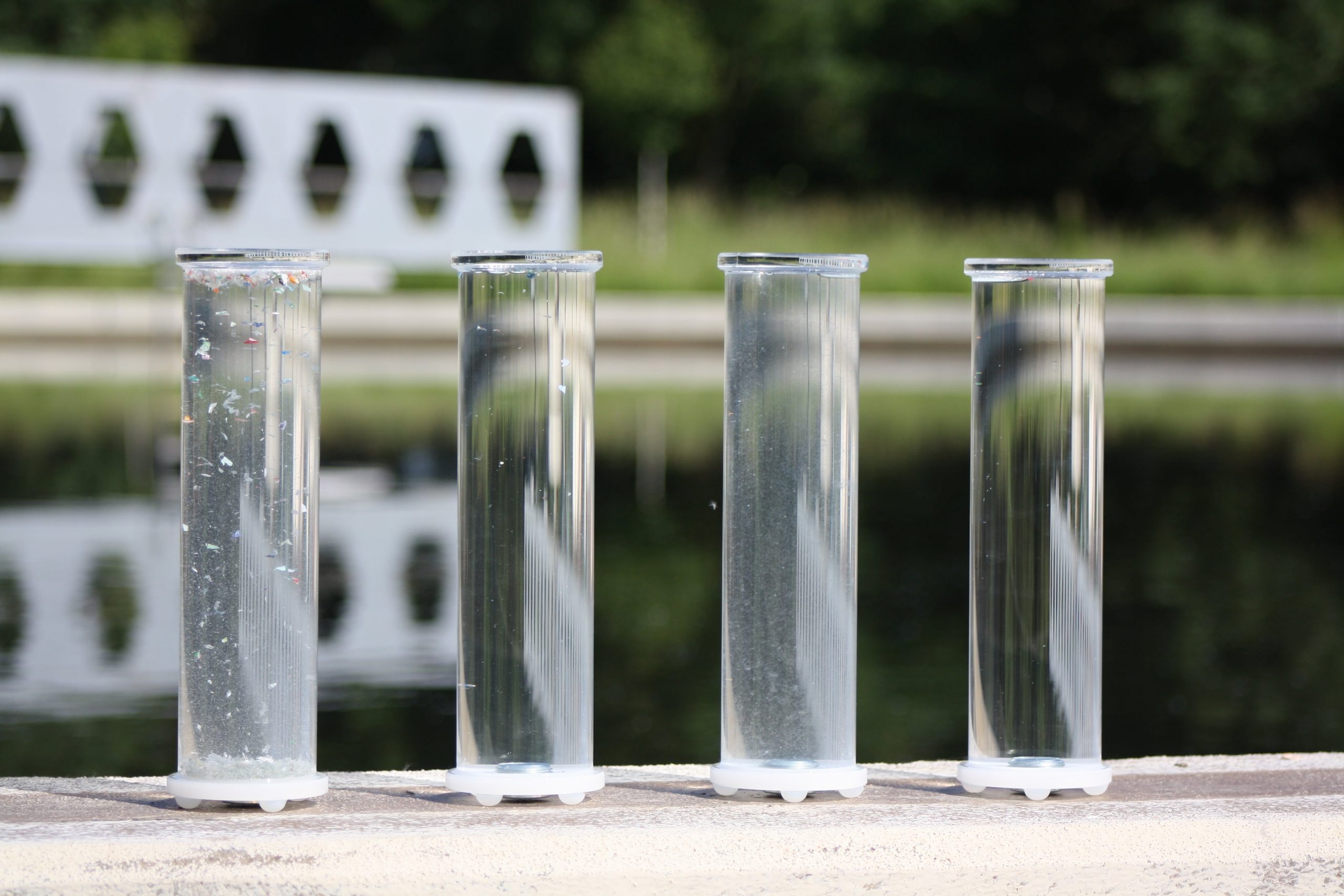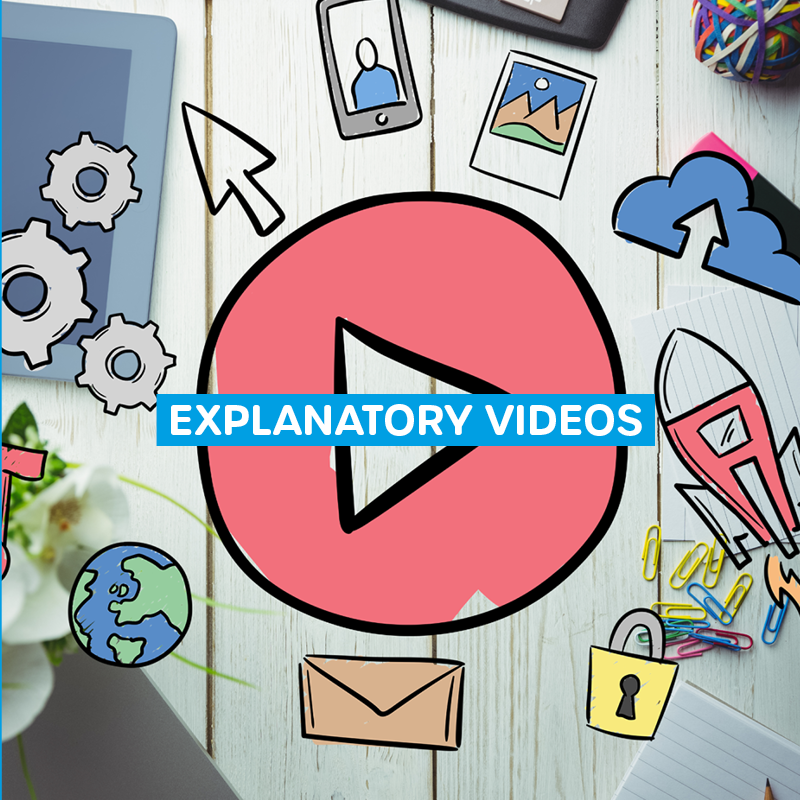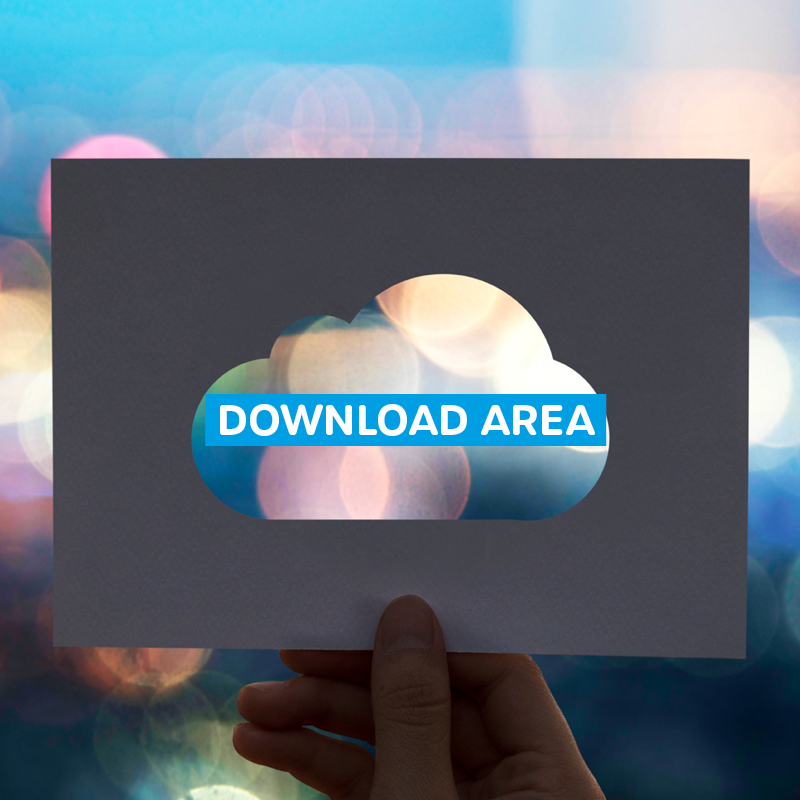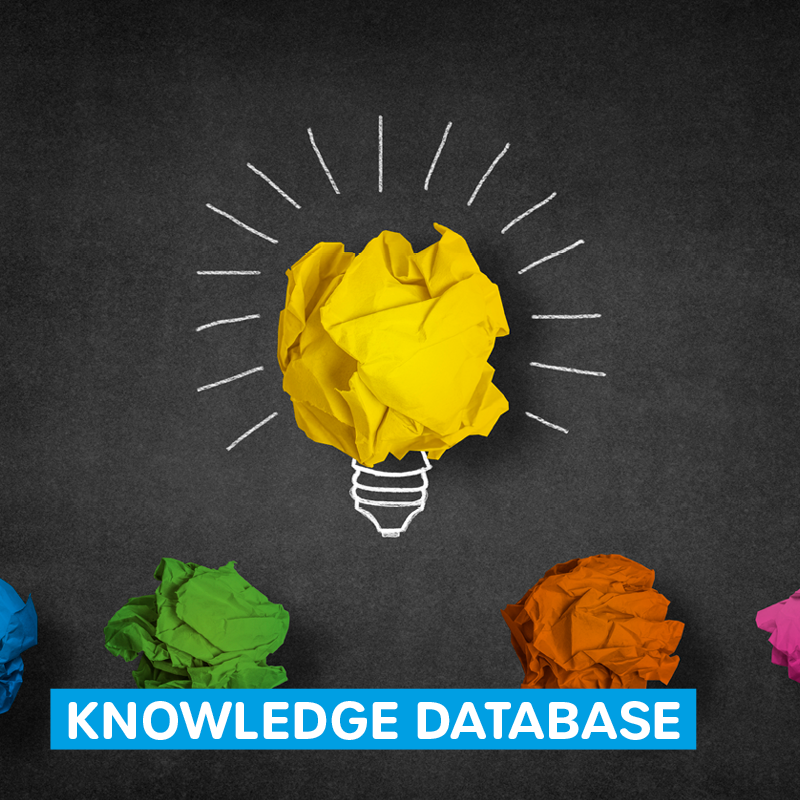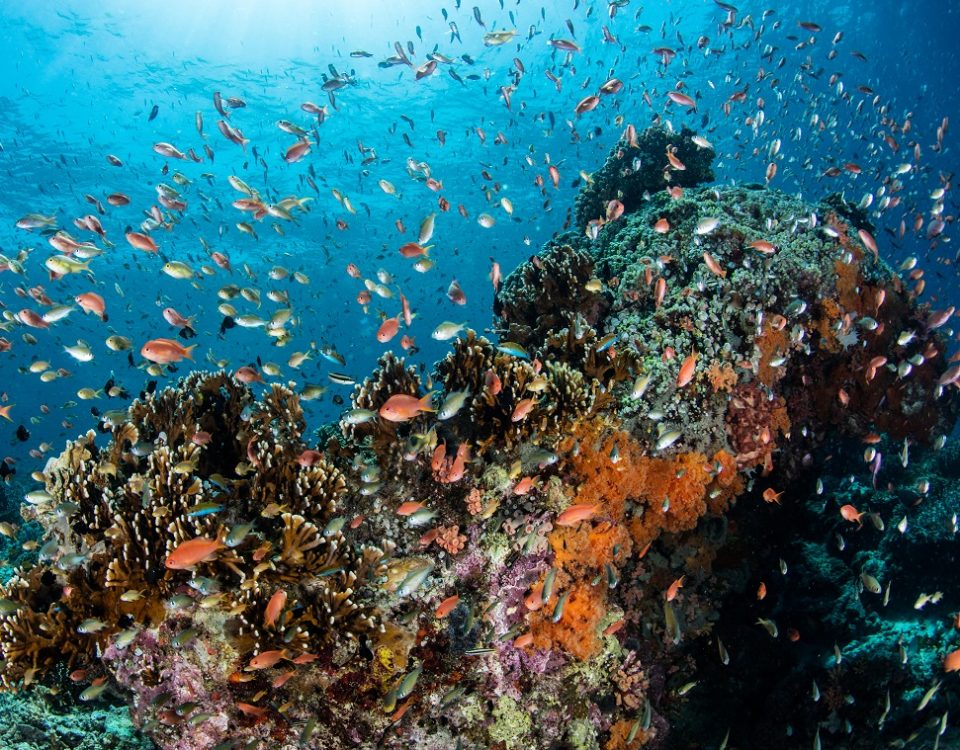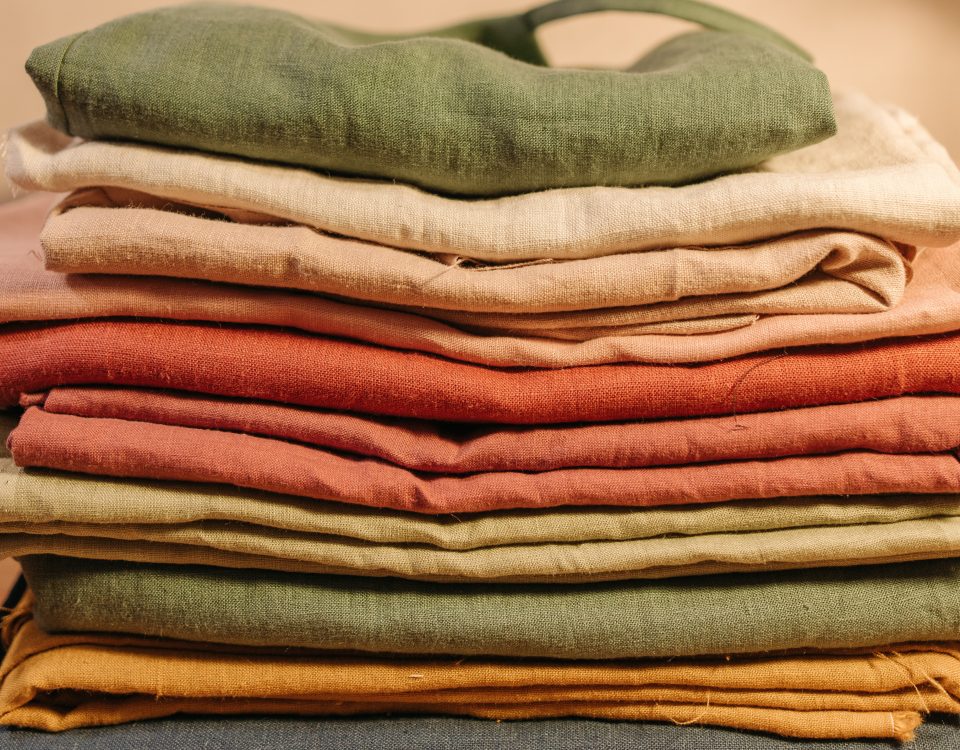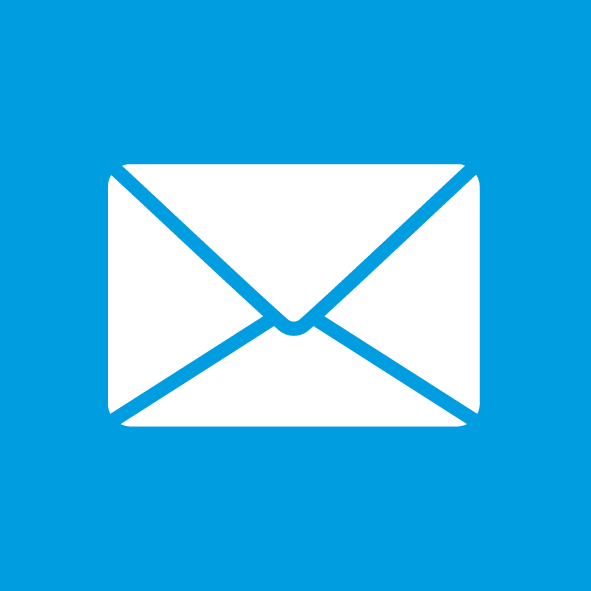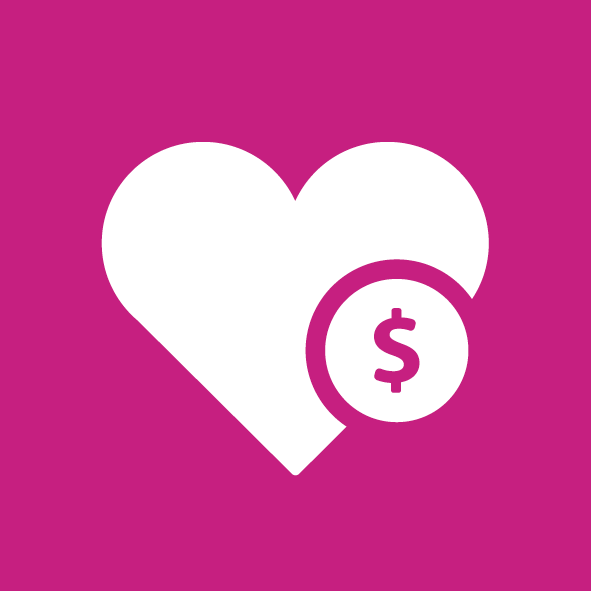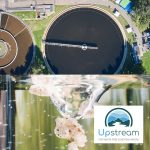
Microplastics in industrial wastewater
2. February 2024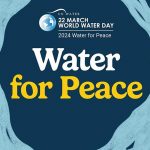
Outlook: Water for Peace – World Water Day 2024
14. March 2024WASoMI training platform launched
As an interdisciplinary team of experts on a mission for water without microplastics, it is our pleasure and aim to share our knowledge and make it accessible to the next generation in the simplest and most accessible way possible.
The basis for FREIRÄUME is provided by the scientifically sound digital-real educational space WASoMI (in german only). Our chemists, environmental scientists and sustainability experts have all contributed their knowledge to it.
Thanks to the support of the Postcode Lottery participants, we were able to realise the FREIRÄUME project last year and bring this wealth of knowledge about water without microplastics to the next level.
Does this make learning possible without effort? Can pupils be taught everything easily? Of course not.
But it's time to put outdated methods of imparting knowledge - of teaching - behind us. With our practice platform, we offer students and teachers completely new ways of learning and teaching: contemporary, authentic, approachable, and understandable.
How do school education function today?
Today's lessons in all types of schools, especially in middle and upper secondary schools (secondary levels 1 and 2), are fast-paced and characterised by stress. It is almost impossible to prepare lessons in such a way that all the criteria for good teaching are met and that they are designed in a skills-orientated and student-oriented way.
Particularly in complex and extensive fields of learning, such as water and microplastics, traditional teaching methods are still used to work through topic after topic in face-to-face lessons. The fact that this does not lead to the desired learning success for students is shown by learning objective tests in which cross-topic knowledge is tested.
In addition, the rapidly evolving digital world leaves teachers and students hardly any time to engage intensively with an app or programme to be able to teach and learn in a meaningful and learner-friendly way. A large number and range of useful and less useful offers are available, but often do not provide a targeted selection and desired learning aid.
In order to prepare future generations for the rapidly evolving digital world, educational institutions and society as a whole have a duty to teach media skills. In this context, a qualitative reorientation of teacher training is necessary due to the demands of the knowledge society for lifelong learning.
The desire of learners and teachers for the learning process
In the future, the learning process should be designed in such a way that it enables self-organised, constructive and active acquisition of knowledge. The real challenges facing future generations of teachers, such as climate protection, water scarcity, wars, and global economic systems, have long been ignored or only dealt with theoretically, but not in a realistic and action-orientated way. Nevertheless, to start this process, innovative, interactive forms of teaching and learning are coming to the center of attention, in order to give learners and teachers access to the digital world.
How WASoMI and the Freiräume project are slowly closing existing gaps
Targeted digitalisation concepts for learning and teaching as well as the networking of subject areas form the basis of WASoMI and the learning information to be conveyed. Our digital tool for this is microlearning, and the worksheets and learning units build on this. Extensive graphics and explanatory videos offer countless design options. We use so-called targeted learning information and build an adaptive system around the goal, which cross-links different learning areas of a subject area across disciplines.
This is precisely where FREIRÄUME comes in.
We benefit from the years that Dr. Katrin Schuhen has spent teaching prospective teachers as a junior professor of organic and ecological chemistry and has already been able to pass on her experience with digital formats of knowledge transfer. The project team is complemented by scientists, teachers, and students. We build spaces for co-creation and participation with them, such as during the Water Days organised by Pure Water for Generations e.V., among others, where we were able to implement the topic of water without microplastics thematically, experimentally, and with data collection over almost 60 water days. During these, more than 1,800 pupils were able to collect 56 new data points for the Global Map of Microplastics.
With our diverse programme, we are increasing the influence of STEM+Environment on the educational map and creating up-to-date, future-proof, adaptive learning environments for more options for action for us and our environment.
The importance of our educational mission
Education is a key factor for more innovation, higher ethical standards, and sustainable behaviour. Education is one of the key levers for microplastic-free water.
With our educational work, we want to close knowledge gaps so that we can take more effective action against the pollution of our water with microplastics.
The aim is both to impart knowledge about microplastics and to prepare the content in such a way that its relevance for achieving the UN Sustainable Development Goals is understood. We are focusing on developing digital possibilities, which are also increasingly being used in schools.
Why environmental protection and the topic of water without microplastics are so important
Only recently have the effects of so-called anthropogenic stressors (including microplastics, micropollutants such as medicines and pesticides, but also many other chemicals, most of which we do not realise are harmful to the environment) on the environment been studied scientifically and widely.
Our Global Map of Microplastics visualizes, for example, where and how much microplastic has been found in bodies of water. And anyone can become part of the solution and help record the data.
By definition, anthropogenic stressors describe substances that enter the ecosystem through unnatural, human-induced processes and disturb and/or negatively affect the natural balance of the ecosystem. A distinction is made between inorganic and organic substances/chemicals as well as inputs from polymers and plastics, which then result in plastics and microplastics in the environment.
Although many of the dangers of such nano- and micropollutants in water for organisms and the aquatic system are now known, the purification processes currently used both in municipal sewage treatment plants and in industrial process cycles are still in need of improvement and cannot be implemented in developing countries, in particular according to German standards.
What do we offer?
As the preservation and restoration of water quality is a comprehensive task that affects all people on earth, we have been continuously pursuing our vision and mission for the common good for many years.
- We develop our solutions for the water and wastewater cycle from the ground up, based exclusively on data and not on estimates.
- We communicate transparently and address today's problems in the context of facts and figures as well as real, effective, and efficient solutions.
Our innovative education and communication concepts help to reach the general public. To provide answers. To build bridges. And without barriers. Oriented towards the common good. And always according to the principles of the “small g” which is the abbreviation for "gemeinnützig" = non-profit or in our words #planetandpeoplefirst.

